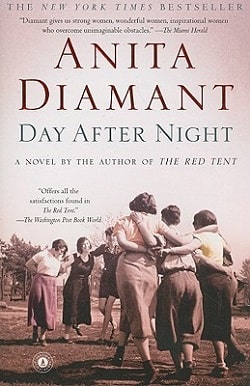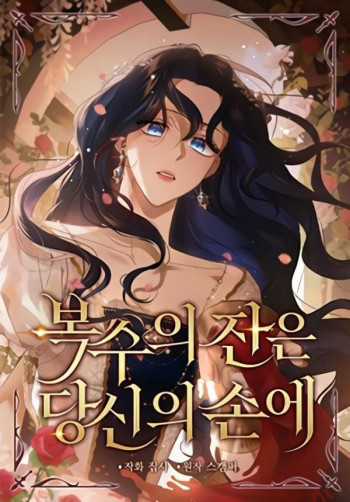Summary

Day After Night
by Anita Diamant
Atlit is a holding camp for illegal immigrants in Israel in 1945. There about 270 men and women await their future and try to recover from their past. Diamant with infinite compassion and understanding tells the stories of the women gathered in this place. Shayndel is a Polish Zionist who fought the Germans with a band of partisans. Leonie is a Parisian beauty. Tedi is Dutch a strapping blond who wants only to forget. Zorah survived Auschwitz. Haunted by unspeakable memories and too many losses to bear these young women along with a stunning cast of supporting characters who work in or pass through Atlit begin to find salvation in the bonds of friendship and shared experience as they confront the challenge of re-creating themselves and discovering a way to live again.
.
Read
Day After Night on http://kissnovel.net
Martial Peak Reviews
Anita Diamant's Day After Night is a poignant exploration of survival, identity, and the enduring power of friendship set against the backdrop of a post-World War II holding camp in Atlit, Israel. The narrative unfolds in 1945, a time when the scars of the Holocaust are still fresh, and the characters are grappling with their traumatic pasts while seeking a semblance of hope for the future. Diamant's ability to weave together the stories of her characters with compassion and depth makes this novel a compelling read that resonates on multiple levels.
The novel centers around four women—Shayndel, Leonie, Tedi, and Zorah—each representing different facets of the Jewish experience during and after the war. Shayndel, a Polish Zionist, embodies resilience and courage, having fought against the Germans with a band of partisans. Her character serves as a reminder of the strength found in activism and the fight for justice. Leonie, the Parisian beauty, represents the allure of life before the war, yet she is haunted by the loss of her family and the life she once knew. Tedi, the Dutch blonde, seeks to escape her past, while Zorah, a survivor of Auschwitz, carries the weight of unimaginable trauma. Together, these women form a tapestry of experiences that highlight the complexities of survival and the struggle to reclaim one's identity after such profound loss.
Diamant's writing is rich with imagery and emotion, allowing readers to feel the weight of the characters' experiences. The setting of Atlit is not just a physical location; it becomes a character in its own right, symbolizing both confinement and the possibility of rebirth. The camp serves as a liminal space where the women confront their pasts and begin to forge new identities. The author’s attention to detail brings the camp to life, from the daily routines to the interactions among the inhabitants, creating an immersive experience that draws readers into the world of post-war Israel.
One of the most striking themes in Day After Night is the concept of friendship as a source of healing. The bonds formed among the women are a testament to the human spirit's resilience. As they share their stories, they find solace in each other's company, creating a support system that helps them navigate their trauma. This theme of solidarity is particularly relevant in the context of the historical backdrop, as it reflects the broader Jewish community's efforts to rebuild and support one another in the aftermath of the Holocaust. Diamant skillfully illustrates how these connections can provide a lifeline, allowing individuals to confront their pain and begin the process of healing.
Character development is another area where Diamant excels. Each woman is given the space to evolve, revealing their vulnerabilities and strengths as the story progresses. For instance, Shayndel's journey from a fierce fighter to a woman grappling with her own fears and doubts adds depth to her character. Similarly, Zorah's struggle to reconcile her past with her desire for a future is portrayed with sensitivity and nuance. Diamant does not shy away from depicting the complexities of trauma; instead, she embraces them, allowing her characters to be fully realized individuals rather than mere symbols of suffering.
The supporting characters in the novel also play a crucial role in enriching the narrative. The camp's staff and other inhabitants bring diverse perspectives and experiences, further illustrating the multifaceted nature of survival and recovery. Through their interactions, Diamant highlights the importance of community in the healing process, emphasizing that while the journey is deeply personal, it is also collective. The relationships formed in Atlit serve as a microcosm of the larger Jewish experience during this tumultuous period in history.
Diamant's exploration of identity is particularly poignant. The women in the camp are not just survivors; they are individuals striving to redefine themselves in a world that has changed irrevocably. The struggle to reclaim their identities is fraught with challenges, as they must confront the ghosts of their past while also navigating the uncertainties of their future. This theme resonates deeply, as it speaks to the universal human experience of seeking belonging and purpose in the aftermath of trauma.
In comparison to other works that tackle similar themes, such as The Nightingale by Kristin Hannah or Sarah's Key by Tatiana de Rosnay, Day After Night stands out for its focus on the female experience of survival and resilience. While both of those novels also delve into the impact of war on women, Diamant's narrative is uniquely centered on the bonds of friendship and the communal aspect of healing. Her characters are not only defined by their suffering but also by their capacity for love, hope, and renewal.
Overall, Day After Night is a beautifully crafted novel that offers a profound meditation on the themes of survival, identity, and the power of friendship. Anita Diamant's compassionate storytelling invites readers to reflect on the complexities of trauma and the resilience of the human spirit. The characters' journeys are both heartbreaking and uplifting, reminding us of the strength found in community and the possibility of healing even in the darkest of times. This book is a must-read for anyone interested in historical fiction that delves into the intricacies of human experience and the enduring quest for identity and belonging.










![Trump [Official]](/upload/pic/manga/trump--official-.jpg)













Reviews 0
Post a Reviews: